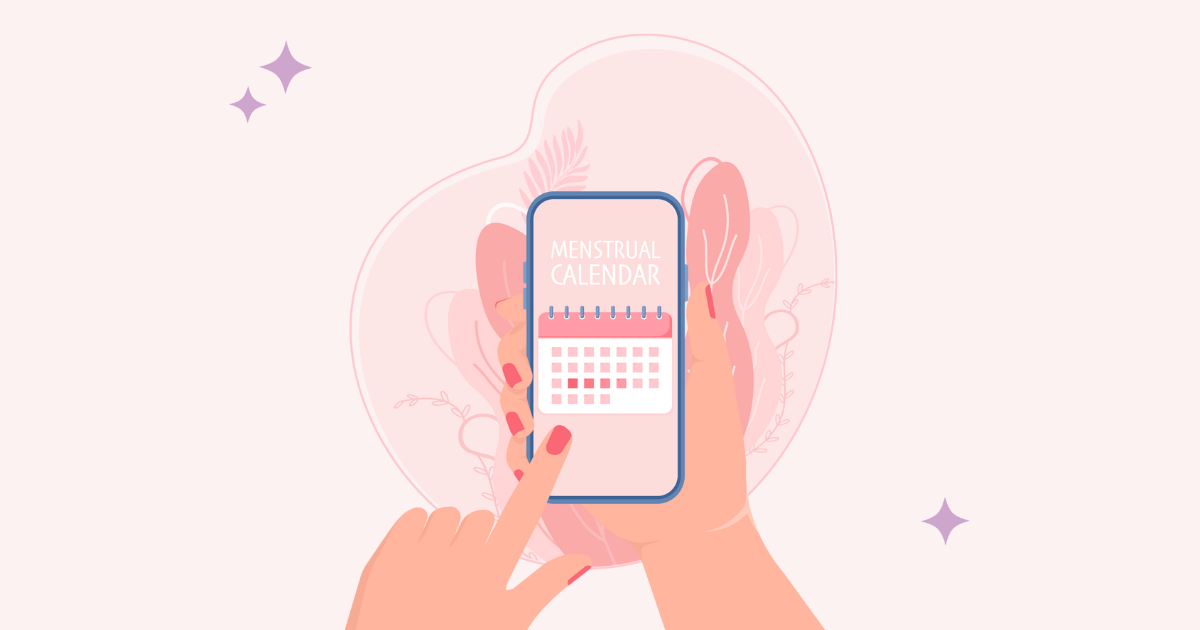What *Actually* Happens During Your Period?

So, you probably know the basics of the menstrual cycle. It’s the thing that happens every month, lasts about a week, and can come with all the fun stuff like mood swings, cramps, and a serious need for chocolate. But what actually happens during your menstrual cycle? Let’s break it down.
The Menstrual Phase (AKA: The Period)
This is the part you’re most familiar with—the actual bleeding. The menstrual phase starts when the egg from the previous cycle wasn’t fertilized, and your body is like, “Welp, didn’t need that lining after all!” So, your uterus sheds its lining, and that’s what you see as your period. When your period arrives, it is classed as Day 1 of your whole menstrual cycle.
This phase usually lasts between 3 to 7 days, and yeah, it can be a bit of a pain—literally. Cramps, bloating, fatigue, and a sudden desire to cry during a random ad on TV? Totally normal. Your hormone levels (like estrogen and progesterone) drop, which triggers the shedding of the uterine lining. So, while you’re curled up with a hot water bottle, just know your body’s busy doing its thing.
The Follicular Phase (The Rebuilding Stage)
Once your period wraps up, your body moves into the follicular phase. Think of it as the rebuilding stage. Your brain sends out signals to your ovaries to start prepping another egg (yes, it’s already thinking ahead). This phase kicks off on the first day of your period but continues until ovulation.
During this phase, your estrogen levels start to rise, and that’s a good thing because estrogen helps rebuild the uterine lining. As the lining gets thicker, your body is essentially getting ready in case of a possible pregnancy. Oh, and as your hormones start to balance out, you might notice your mood lifting, energy levels improving, and your skin looking a little glowier. Bonus!
Ovulation (The Main Event)
About halfway through your cycle—usually around day 14 in a 28-day cycle—comes ovulation, the main event. This is when the egg is released from the ovary and makes its way into the fallopian tube. It’s like the body’s very own “Ready or Not, Here I Come!” moment.
Ovulation can come with some signs, like a slight twinge or cramping on one side of your lower abdomen (called mittelschmerz—fancy, right?). Your body temperature might rise slightly, and your cervical mucus might change in texture, becoming clearer and stretchy (like egg whites). All of this is your body’s way of saying, “Hey, we’re ready if you are!”
The Luteal Phase (The Waiting Game)
After ovulation, your body enters the luteal phase, which is the “wait and see” part of the cycle. The follicle that released the egg turns into something called the corpus luteum, which starts pumping out progesterone. This hormone helps keep the uterine lining thick and ready for a potential pregnancy.
If the egg isn’t fertilized, the corpus luteum eventually breaks down, causing your hormone levels to drop. This drop is what triggers the premenstrual symptoms (PMS) that we all know and love—bloating, mood swings, irritability, and fatigue. Your body is preparing to start the cycle all over again, and as the hormone levels fall, the uterine lining begins to shed, leading back to the menstrual phase.
And Then It’s Time to Do It All Over Again…
So, there you have it—the menstrual cycle in a nutshell. It’s a whole lot of behind-the-scenes action, from the shedding and rebuilding of the uterine lining to the big ovulation moment. While it can feel like a rollercoaster of emotions and physical changes, knowing what’s actually going on can help you understand and maybe even appreciate the cycle your body goes through every month.
And remember, everyone’s cycle is different. Some might have longer or shorter cycles, different symptoms, or even different experiences altogether. But no matter what your cycle looks like, it’s all part of the natural process that makes your body pretty incredible.
Get to know your period better with the Missy Period section.







